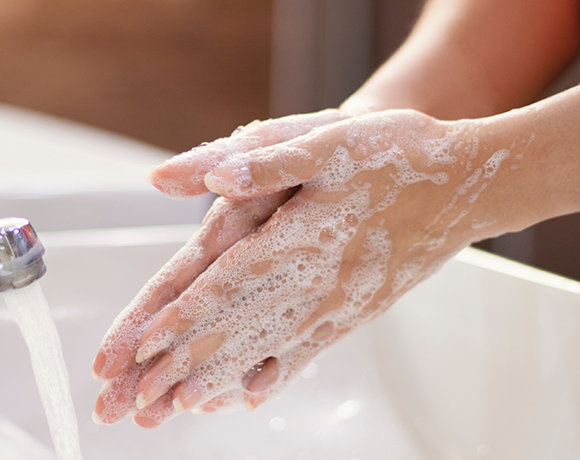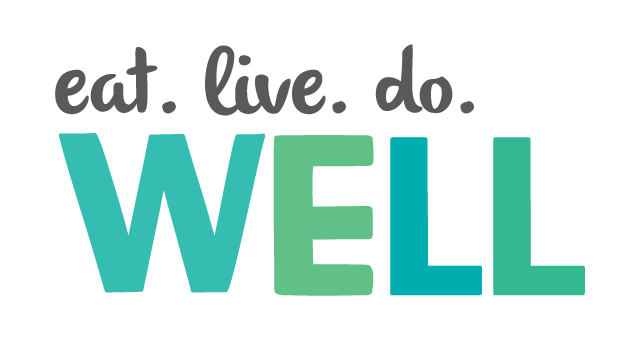When something is new, people tend to have a lot of questions. The new coronavirus disease is no exception. As a dietitian working in foodservice, I’ve been getting my share of questions – some related to food and some not. Below is some information that will hopefully clear up some questions you might have.

What is COVID-19?
I’ll admit that I missed when we switched from calling it Coronavirus to COVID-19. Turns out this is just an acronym to be a little more specific and help distinguish from other coronaviruses that have been around for a while. The name of the illness associated with the new virus is coronavirus disease 2019, abbreviated as COVID-19. In COVID-19, ‘CO’ stands for ‘corona,’ ‘VI’ for ‘virus,’ and ‘D’ for disease with 19 referring to the year it was identified. COVID-19 symptoms include fever, cough and shortness of breath.
Can you get COVID-19 from food?
According to both the CDC and FDA, there is currently no evidence to suggest that you can get COVID-19 from food. COVID-19 is transmitted from person to person by being close to someone who has the virus, especially if they cough or sneeze. While it is possible to get COVID-19 by touching a surface or object that has the virus on it and then touching your mouth, nose, or eyes, this is not thought to be the main way the virus spreads. There is currently no association with local or imported food and COVID-19.
Do you need to do anything special when preparing food at home?
When you consider the time and temperatures involved in transporting food, the likelihood the virus survives the trip to your home is very low. Even so, it is a good idea to keep up with your standard food safety practices at home to prevent other illnesses. Wash your hands before and often while handling food. Rinse all produce before cutting and preparing. Water should do the trick. Do not use any cleaners that are not approved for use on food. Cook all food to the proper temperatures and keep them that way. Keep cold food cold and hot food hot.
Is it safe to eat out or have food delivered?
There is currently no evidence that the virus is spread by food or food packaging. The current recommendations to close restaurants are not related to the food itself, but are designed to keep people from gathering close enough to each other to spread the virus. This is why takeout and delivery are still allowed in most areas. Standard food safety precautions followed by all responsible food establishments and their employees also help to prevent the spread of COVID-19. We wash our hands…a lot. We stay home when we are sick. We avoid touching our eyes, nose and mouth. We do this to keep ourselves and our guests safe. We were doing it before COVID-19 and we will continue to now.
Are there foods I can eat to prevent COVID-19?
No. Seriously, no. If there were they would currently be on every one of our menus. Please do not believe that you can boost your immune system by eating a lot of berries and then safely visit your friend who is sick. Your immune system doesn’t work that way. Now, is it a good idea to maintain a healthy diet to keep yourself healthy overall? Absolutely. So, while you are out getting hand sanitizer and toilet paper, make sure you pick up some fruits, vegetables, whole grains, nuts, seeds and other foods that support overall health.
Should I stock up on shelf stable foods?
Right now we produce more than enough food for the people in our country. So much so that we have a substantial problem of too much food being wasted. This doesn’t mean that there aren’t people experiencing food insecurity. There certainly are, but that is not a supply issue that suggests you should stock pile. If you are concerned about being quarantined and unable to shop for yourself, adding some foods to your pantry or freezer that won’t go to waste if you don’t use them right away isn’t a bad idea. Don’t go overboard though. A typical quarantine is about 2 weeks, so no need to stockpile 90 days of food.
What about drinks?
Two things. Corona beer is not a source of coronavirus and vodka should not be used to make hand sanitizer. Other than that, stay hydrated by drinking mostly water. This won’t prevent COVID-19, but is good for your overall health.
Bottom Line
Wash your hands often. Keep your hands away from your face. Stay home if you are sick. Listen to people who are educated and trained in health and disease prevention – doctors, epidemiologists, state and local health departments, the CDC and FDA. Not everyone is at the same risk for this or other diseases. Talk to your health care provider to see if you should take additional precautions beyond those for the general public.
If you have questions that I haven’t answered, feel free to send them in to our Ask the Chefs and RDs page and we’ll be sure to answer them or point you in the direction for reliable information.
References:
- https://www.fda.gov/emergency-preparedness-and-response/mcm-issues/coronavirus-disease-2019-covid-19-frequently-asked-questions
- https://www.cdc.gov/coronavirus/2019-ncov/about/index.html
Related:
Holiday Food Safety // Personalized Nutrition // How A Vegetarian Diet Can Combat Chronic Illnesses



Leave a Reply
You must be logged in to post a comment.